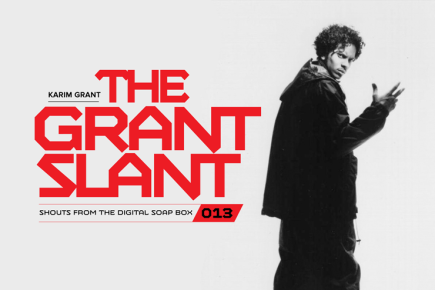One of the most recognizable baselines in hip-hop history is Special Ed’s (pictured in column artwork) wildly famous, head-nodding late ’80s anthem “I Got It Made”. When he told us he was our “Idol, the highest title, numero uno,” we took his word for it, and allowed him to make that claim.
Back then, no Google, Wikipedia or other search engines could validate his claim. In 1989, the art form called rap was still in a state of virtual infancy, a pre-adolescence of sorts. Lyrical content was still wrought with overt bravado and the bewildering confidence afforded to almost every up-and-coming rapper.
Basketball, is easily juxtaposed with rap music, and primarily in the United States, has effectively mirrored the streets for decades.
From afros and bell-bottoms to cornrows and baggy shorts: whatever the streets hailed as the next fashion forward statement, the game of basketball was sure to follow suit.
Not only were street fashion trends echoed in the ABA and NBA, but many professional ballers possessed the cocky self-confidence shown by their rap music counterparts also.
For some reason, stating the obvious has become a thing.
This is commonly evident in today’s NBA, as many stars have taken it upon themselves to proclaim their greatness and on-court prowess to the masses. For some reason, stating the obvious has become a thing.
LeBron James said emphatically during his finals run earlier this year that he wasn’t worried about the state of the series, as he was the “best player in the world”.
Thanks, ‘Bron, we weren’t sure about that, I guess. After the four MVP awards, two finals MVP awards, two championship rings and 11 All-Star appearances, we were still somewhat unsure about your status!
Last season’s MVP of the NBA was Steph Curry. A slight, baby-faced three-point sharpshooter with handles that would make even Allen Iverson raise an eyebrow. His skill resonated, but more so his boyish charm and genuine humility.
His runner-up was James Harden who also had an incredible season. He led his Rockets to the playoffs, before eventually bowing out in the Western Conference finals. Many argue that Harden should have been named MVP. He himself has ungraciously said that he was snubbed.
Sorry James, but by saying you’re not taking anything away from Steph, you actually are detracting his much-deserved award by replacing his spotlight with yours.
Earlier this month he stated in Sports Illustrated: “I led the league in total points scored, minutes played. Like I said, I’m not taking anything away from Steph, but I felt I deserved the Most Valuable Player.”
Sorry James, but by saying you’re not taking anything away from Steph, you actually are detracting his much-deserved award by replacing his spotlight with yours.
Not to be outdone, the venerable Kevin Durant recently stated that he too, was the best: “No disrespect to anyone else, but I feel like I’m the best player in the world.”
Granted, Durant is the former MVP of the league, but because of an injury, he sat out a good chunk of last season paving the way for others to step into the bright lights of MVP-dom.
For some, this injury would’ve humbled them to a motivated silence. But, in this era of social media relevance, injury serves as a platform to forcibly declare to the world that they shouldn’t forget you.
What better way to do this, than to stand on your digital soapbox, and yell, “I AM THE GREATEST”?
Assertions of greatness have long been a part of the rap music, since claims of greatness in the streets whether from hustling, gangbanging or riches gained from such activities, have prevailed in many verses.
Peers, reporters, fans and statistical experts anoint “best” or “great” to those deserving of the title based on their stats, not their vocal chords or Twitter fingers.
Despite the odd barbershop conversation, unfortunately, there are no analytics or statistics to verify every claim. For some reason, we’ve accepted it – probably because we can’t prove them wrong. Well, at least until one of their peers do.
This cannot be said for the professional sports, as every shot, rebound, assist and minute played is documented, scrutinized and evaluated.
One’s on-court prowess is usually defined in numbers and in championships won, which usually speaks volumes for a particular athlete.
Peers, reporters, fans and statistical experts anoint “best” or “great” to those deserving of the title based on their stats, not their vocal chords or Twitter fingers. Ultimately, you can come to conclusions based on your own analysis without being force-fed assertions from overactive social media-friendly professional athletes.
Perhaps it’s because of my open humility that I cannot comprehend why today’s athletes choose to proclaim their prowess to the masses without allowing their numbers to do the talking.
Then again, one might say that my proclamation of unconcealed humility matches the type of arrogance these pros display.
I guess we all got it made. Or so, it would seem.




Comments are closed.